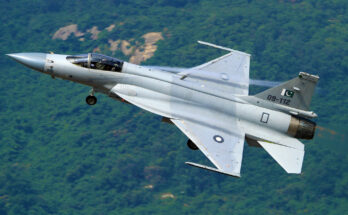
The anger of the Trump administration over European allies NATO expenditures appears to have had an effect, helping to push Thales results higher. After years of reduced defense spending in Europe, the pendulum appears to be swinging back as governments begin to invest more in their militaries.
For 2018, Thales’ sales rose 4 percent to EUR15.8 billion, up from EUR15.2 billion in 2017. The company posted net income of EUR982 million, compared with net income of EUR822 million in 2017. Sales in the Defence & Security segment reached EUR8.0 billion, up 4.3 percent compared to 2017; while sales in Aerospace totaled EUR5.6 billion, up 0.6 percent compared to 2017. The company’s Transport segment performed best, with sales of EUR2.0 million, up 16.1 percent year over year.
During its slow years, Thales focused on operations at home and expanded abroad via teaming and joint ventures. With tensions high in many regions of the world, the drive to maintain defense has risen as well. Sales to Asia, the Middle East, and various emerging markets have shown solid increases as the company rides on the coattail wins of the Dassault Rafale in the Middle East and India, and Naval Group submarines in Australia. Sales and support to these and other emerging markets are expected to remain stable in the near term as nations reinvest in their defense budgets.
Despite this growth, Thales will face stiff competition from other Western manufacturers that are following suit. Price competitiveness and a willingness to team and provide offsets will be key to the company’s ability to succeed in this environment. Thales has proven its willingness to partner, and this could be a beneficial factor in future competitions.
Another avenue of growth has been in digital services. Here the company has been expanding its operations, most recently acquiring the civil cybersecurity firm, Gemalto, in a $5.6 billion deal. The combined portfolio is aimed at allowing Thales to deliver seamless, end-to-end data and security services to both government and industry. One of Gemalto’s key offerings comprises secure passports and ID cards as well SIM cards and credit cards. Thales had to divest a general-purpose hardware security modules business to secure regulatory approval for the deal, which was completed in April 2019. With the acquisition completed, Thales revenues will rise to EUR19 billion and it will employ some 80,000 employees across 68 countries.
Gemalto will now operate as Thales Digital Identity and Security division. With this addition, Thales will now cover the entire critical decision chain in a digital world, from data generation via sensors to real-time decision support, the company said. Of particular focus will be the markets aimed at the Internet of Things, Big Data, artificial intelligence, and cybersecurity. Specific areas of interest cited by Thales include unmanned air traffic management, data and network cybersecurity, airport security, and financial transaction security.

A military history enthusiast, Richard began his career at Forecast International as editor of the World Weapons Weekly newsletter. As the Internet became central to defense research, he helped design the company’s Forecast Intelligence Center and now coordinates the FI Market Recap newsletters for clients. He also manages two blogs: Defense & Security Monitor, which covers defense systems and international security issues, and Flight Plan, focused on commercial aviation and space systems.
For more than 30 years, Richard has authored Defense & Aerospace Companies, Volume I (North America) and Volume II (International), providing detailed data on major aerospace and defense contractors. He also edits the International Contractors service, a database tracking all companies involved in programs covered by the FI library. Richard currently serves as Manager of the Information Services Group (ISG), which develops outbound content for both Forecast International and Military Periscope.



